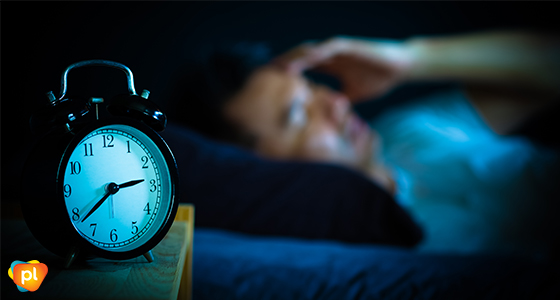
Another morning where I wake at 3.30am. Insomnia. By now I know it’s hopeless to try and fall back asleep. I decide to do a Macca’s run and start the day. With COVID biting hard, the three nearby that I drove to were all closed.
My only solace is knowing I’m not alone, struggling to get a solid night’s sleep. Friends living with HIV of all ages have shared with me their unending quest for a good night’s sleep. Some have trouble falling asleep, while others are resigned to sleep in bursts throughout the night and then struggle sleep-deprived through the day. A bit like I do sometimes.
In fact, I’m relieved and not really surprised to see I’m not alone when looking through the research. Estimates show that up to 80% of adults living with HIV report poor sleep quality and significant sleep disturbances, compared to only 30% in the general population. At least one report links depression as a leading cause, if not an aggravating factor to disturbed sleep. The impact of poor sleep on our quality of life is well known.
We already know the drawbacks to not getting a good night’s sleep. Besides an undercurrent of fatigue the next day, loss of sleep chips away at your sense of well-being, raise anxiety or depression levels, and generally leaves you feeling pretty shitty each and every day.
For people living with HIV, these impacts can be serious. Living with HIV is associated with a fivefold increase in the risk of insomnia. Consistent loss of sleep means your body has less resources to deal with infection, and sleep trouble increases risks associated with cardiovascular (heart and lung) and metabolic (gut and digestion) health conditions, lower CD4 counts, type 2 diabetes, and lower adherence to HIV antiretroviral meds.
Enough with the bad news. What can we do about it?
Start a sleep diary and use it to support an evidence-based conversation with your doctor. Guard your sleeping time and make it untouchable. Insomnia can be caused by a number of different reasons and may relate to several factors such as depression or stress and longstanding poor ‘sleep hygiene’.
Sleep hygiene practices can be very helpful. Try to stick to a routine, go to bed at a set time each night, avoid going to be bed hungry or full, and take a shower or choose a relaxing activity close to bedtime. Remove electronic devices so you resist the urge to use them in the bedroom and keep pets or children out of the bed. Google ‘sleep hygiene’ to find any number of options you might like to follow up. Check out the resources of Sleep Health Foundation and Sleep Disorders Australia.
You might like to also check the HIV antiretrovirals you’re taking. Some HIV antiretrovirals, are known for varying sleep-related impacts, and you might want to discuss these with your HIV specialist. For some of us, we have few to no other options but to take our current prescription. However, it could still be worthwhile having a conversation with your HIV specialist.
If your sleep doesn’t improve, you could speak with your HIV specialist about getting a referral to a trained sleep therapist or a sleep clinic. There have been successes with cognitive-behavioural therapies for insomnia in people living with HIV. You could already meet the criteria for a sleep study, which can assess your health complications and treat more serious conditions such as obstructive sleep apena syndrome (OSAS).
If you’re living with HIV and want to brainstorm some thoughts around the actions you can take to get your sleep sorted, give us a buzz here at Positive Life NSW. As people living with HIV, we understand the importance of a good night’s sleep.
You can call us on (02) 8357 8386, 1800 245 677 or email contact@positivelife.org.au for support to make your own plan to take control of your sleep, and maybe catch a few more zzzzz’s.






